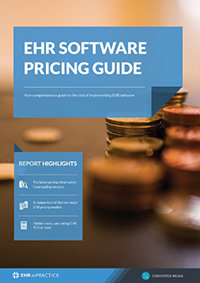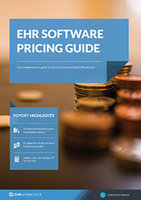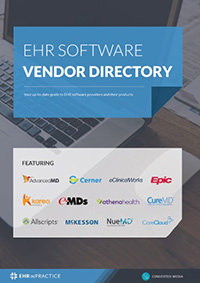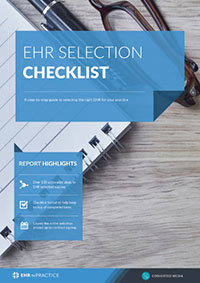3 EHR software issues to face now you’ve conquered ICD-10
October 1, 2015 came and went. The universe didn't implode and clinicians are surviving in the new world of ICD-10. Now that your practice has conquered ICD-10, you can focus on new issues and goals for your EHR systems and practice operations.
1. Mobile integration
With decreasing reimbursements, clinicians are expected to see a higher patient volume while maintaining high quality of care. With mobile EHR, clinicians have the ability to monitor their patients, finish documentation and communicate with patients and staff without having to be within the four walls of the medical practice. Therefore, mobile integration should be a huge focus for your company in the next year, if you do not already offer this feature. Mobile access will give your clinicians greater flexibility and help them improve patient care.
2. Increasing audits and oversight
You should also be prepared for an increasing amount of audits from the Office of Inspector General (OIG) for professionals participating in Medicare or Medicaid EHR Incentive Program. Specifically, the OIG will focus on investigating fraud within the program and ensure that users are actually meeting the requirements for meaningful use. Because participating entities self-report their EHR figures, CMS will strive to verify the data to ensure the integrity of incentive payments.
Recommended reading: 2015 EHR software pricing guide
These reviews would likely start with an audit, in which the practice will provide CMS documentation to support their self-reporting data. If there is an issue or CMS is unable to verify the accuracy of information, it may proceed to an on-site review. As a practice, you should ensure that all of the information related to your EHR meaningful use is readily accessible, organized and properly documented. As long as you are using the EHR system properly and only reporting true and accurate information to CMS, you will not have to worry in the case of an audit. Keep your EHR system up to date, organized and accurate and any potential audits will be no sweat.
3. Security and network protection
As more and more medical practices are converting to EHR systems, there seem to be more and more security threats popping up. From retail giants, to banks, to healthcare systems, information is consistently finding its way into the wrong hands. Therefore, you should redirect some of your energy and financial resources to updating and securing your EHR system. Consult with your IT department or with a third party IT vendor to see if there is any facet of security that your system is missing. Research any new trends in online security and network protection. Ensure that your practice has taken every step it can to keep your patients’ information secure.
Free white paper

EHR Pricing Guide
Get your complete guide to EHR software pricing and project costs. Your headstart on EHR pricing research

Featured white papers
Related articles
-

The Pros and Cons of the ICD-10 Transition: Does One Outweigh the Other?
The ICD-10 transition is less than a year away, but do the pros of ICD-10 outweigh the cons?
-

ICD-10: where does EHR stand six months on?
How the ICD-10 transition has affected the landscape for EHRs and health IT
-

3 Aspects of ICD-10 Practices Are Still Unsure About
ICD-10 implementation will not be straightforward, these three aspects however need not be hindra...



